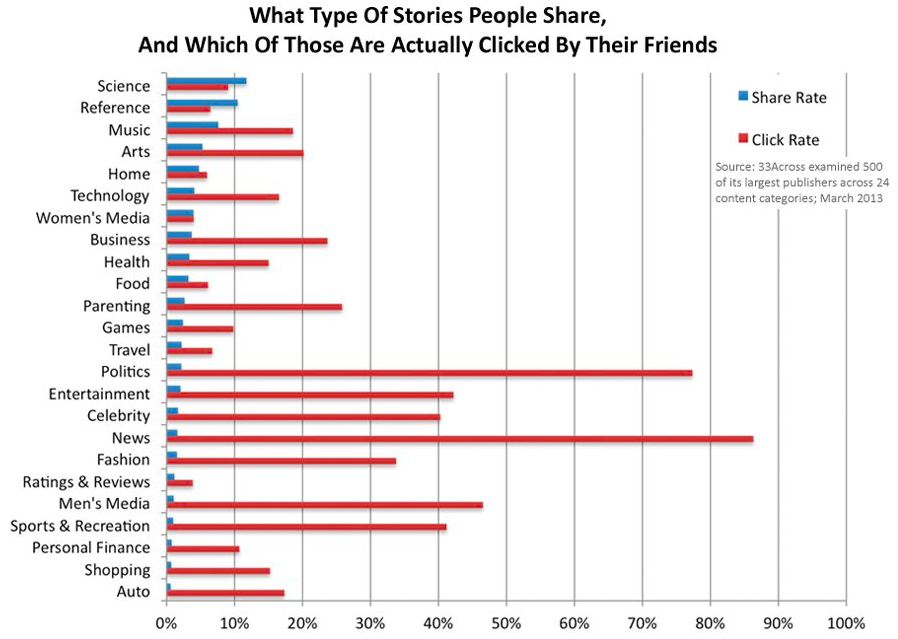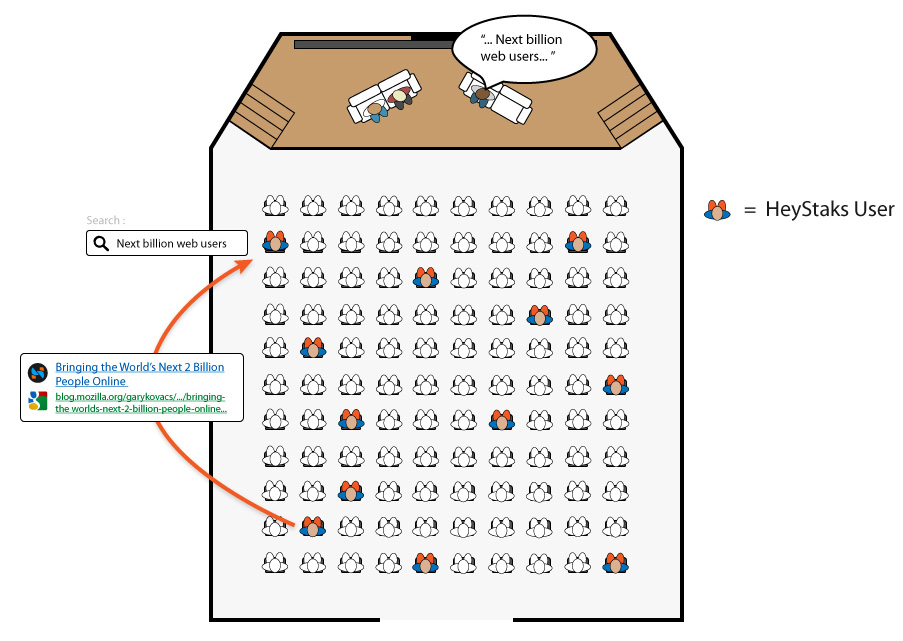The Internet is an archive of our lives. Every event captured, every photo rendered, and every conversation indexed. And, if it can be stored it can be found. Maybe not today but someday, by a friend perhaps, or a future employer, whether we want it to be found or not. This is both liberating and terrifying. But is it creating an incentive for people to hide their true personalities? Are we curating carefully crafted personas online that only disguise our genuine personalities? If so then, what we share may not be what we click and this has some important implications for the future of personalization, sharing, and recommendation on the web.

Figure 1. An analysis of what people share versus what is clicked, by 33Across, and based on 450 large publishers and 24 content categories.


